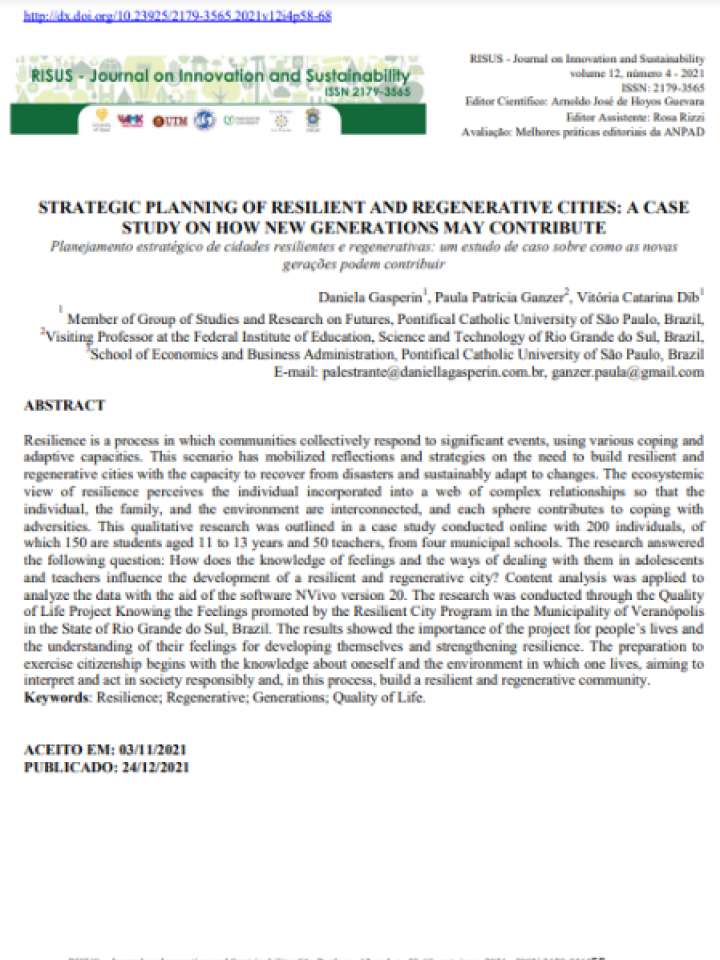Strategic Planning of Resilient and Regenerative Cities: A case study on how new generations may contribute
Resilience is a process in which communities collectively respond to significant events, using various coping and adaptive capacities. This scenario has mobilized reflections and strategies on the need to build resilient and regenerative cities with the capacity to recover from disasters and sustainably adapt to changes. The ecosystemic view of resilience perceives the individual incorporated into a web of complex relationships so that the individual, the family, and the environment are interconnected, and each sphere contributes to coping with adversities.
This qualitative research was outlined in a case study conducted online with 200 individuals, of which 150 are students aged 11 to 13 years and 50 teachers, from four municipal schools. The research answered the following question: How does the knowledge of feelings and the ways of dealing with them in adolescents and teachers influence the development of a resilient and regenerative city? Content analysis was applied to analyze the data with the aid of the software NVivo version 20. The research was conducted through the Quality of Life Project Knowing the Feelings promoted by the Resilient City Program in the Municipality of Veranópolis in the State of Rio Grande do Sul, Brazil. the results showed the importance of the project people lives and the understanding of their feelings for developing themselves and strengthening resilience. The preparation to exercise citizenship begins with the knowledge about oneself and the environment in which one lives, aiming to interpret and act in society responsibly and, in this process, build a resilient and regenerative community.
Explore further
